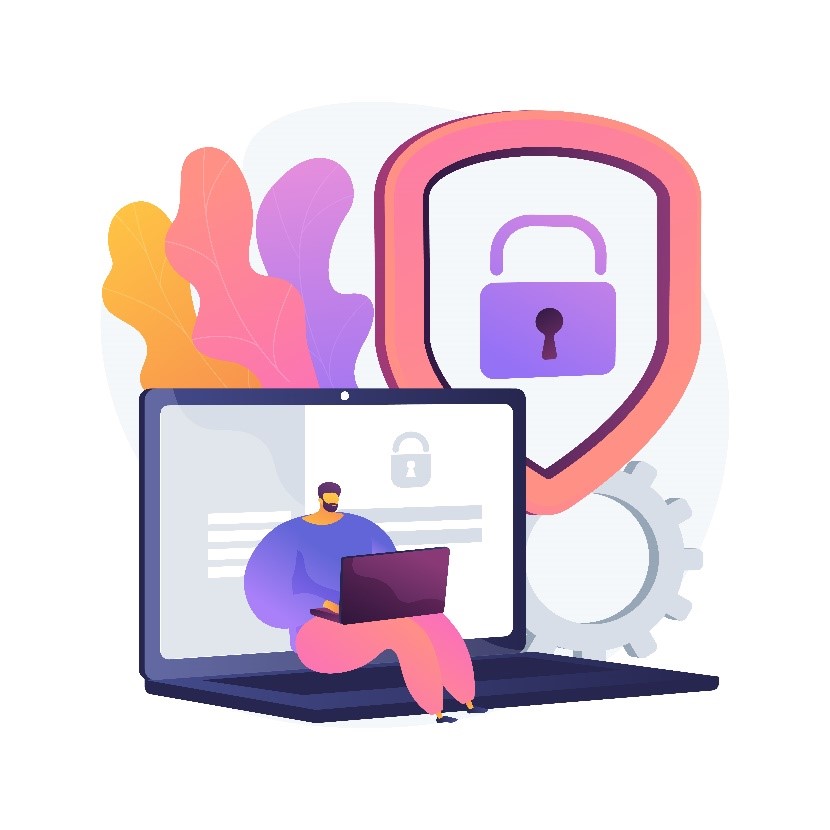Smartphone, computer, tablet, and sometimes times two: one set for work, one for personal use. All of those devices hold a lot of your personal information, therefore it is important to make sure that they are protected. Below are simple steps you can take in your everyday use of devices to limit the possibility of data being used against you.
 Source: https://freepik.com/
Source: https://freepik.com/
- Keep your device locked.
This is important for work devices especially, as they might hold not only your data but the data of your students or your school. Use a PIN, password, facial ID or fingerprint to unlock your device when you want to use it. Your options will vary depending on the device, operating system and manufacturer.
- Keep your device operating system up-to-date
Companies check for system vulnerabilities constantly and update their system on regular basis to keep their users protected. If possible set automatic updates on your devices.
- Beware of downloads
Don’t download files from sources you don’t trust and always double-check before saving the files.
- Be mindful of the source of applications and programs
If you are downloading applications for your tablet or phone, make sure you are using official app stores dedicated to your operating system (Google Play for most Android phones, App Store for iOS devices) as they have internal systems to keep malicious applications out of the store. When you want to install applications and programs on your laptop, make sure they come from trusted sources and official websites.
- Install anti-virus software
Your work devices should come with anti-virus protection, but it’s good to ask if and what program is installed and the basic user manual of the program. When using your own devices make sure to install one of many programs available both on your computer and tablet or smartphone.
- Don’t store passwords or other sensitive information directly on your devices
This is very important for more portable devices like phones or tablets that might be easier to lose. Avoid storing information like your banking data or important personal details that may be used to take credit on your name or lead to identity theft.
- Be careful about websites you visit on the web.
When visiting any website it automatically downloads text and multimedia content when you visit them, and some of this content might be malicious.
- Consider using VPN
If you are using the internet in public places, consider using VPN, it masks your connection from hackers allowing you to connect privately.
This video covers top internet tips on the most important online behaviour that will help you stay safe. It especially focuses on what to share (or not) and our internet presence.
Teachers have access to a lot of personal data or students and internal confidential school documents that need to be protected. While initially, the steps needed to implement in everyday life can seem complicated, with practice they will become second nature even for the beginner user. Implementing these rules will help protect devices and by extent personal and confidential data.